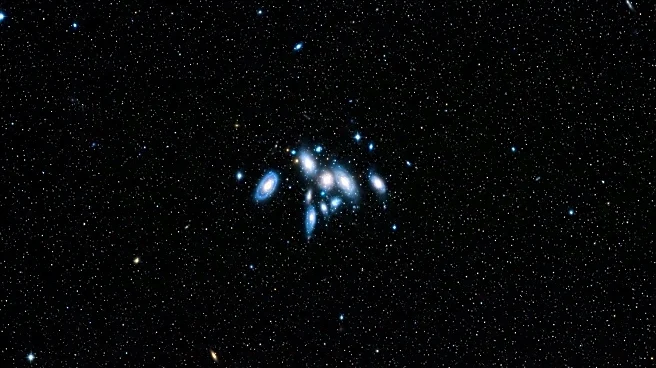What's Happening?
Recent research utilizing data from the Hubble and James Webb Space Telescopes has identified small dwarf galaxies as significant contributors to the cosmic dawn reionization process. These galaxies emitted ionizing photons that transformed neutral hydrogen into ionized plasma, clearing the fog of murky hydrogen that filled intergalactic space. The study, led by astrophysicist Hakim Atek, focused on the galaxy cluster Abell 2744, which acts as a cosmic lens, magnifying distant light. The findings reveal that dwarf galaxies are more abundant and brighter than previously thought, outnumbering large galaxies by 100 to 1 and collectively producing substantial ionizing radiation.
Why It's Important?
This discovery is crucial for understanding the early universe's evolution and the role of low-mass galaxies in shaping cosmic history. The identification of dwarf galaxies as key players in reionization challenges previous assumptions that larger galaxies and black holes were primarily responsible. This insight could lead to a reevaluation of cosmic dawn dynamics and the factors influencing galaxy formation. The research also demonstrates the capabilities of the James Webb Space Telescope in uncovering hidden aspects of the universe.
What's Next?
Researchers plan to study additional cosmic lens regions to ensure their findings are representative of the entire population of early galaxies. This expanded research could provide a more comprehensive understanding of the reionization process and the distribution of dwarf galaxies in the early universe. Continued observations and analysis are expected to yield further insights into the mechanisms driving cosmic evolution.
Beyond the Headlines
The study highlights the importance of advanced telescopes in exploring the universe's early stages and the need for international collaboration in astronomical research. Understanding the role of dwarf galaxies in reionization could have broader implications for the study of galaxy formation and the universe's development.









